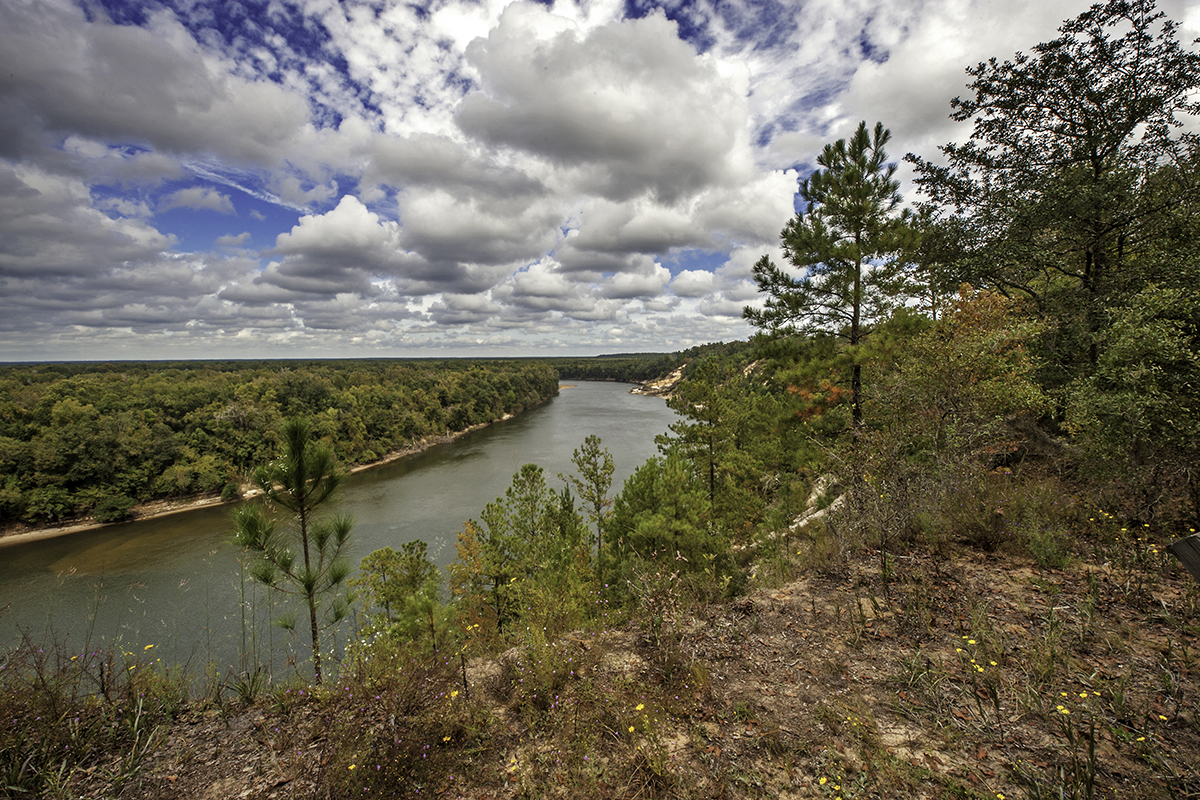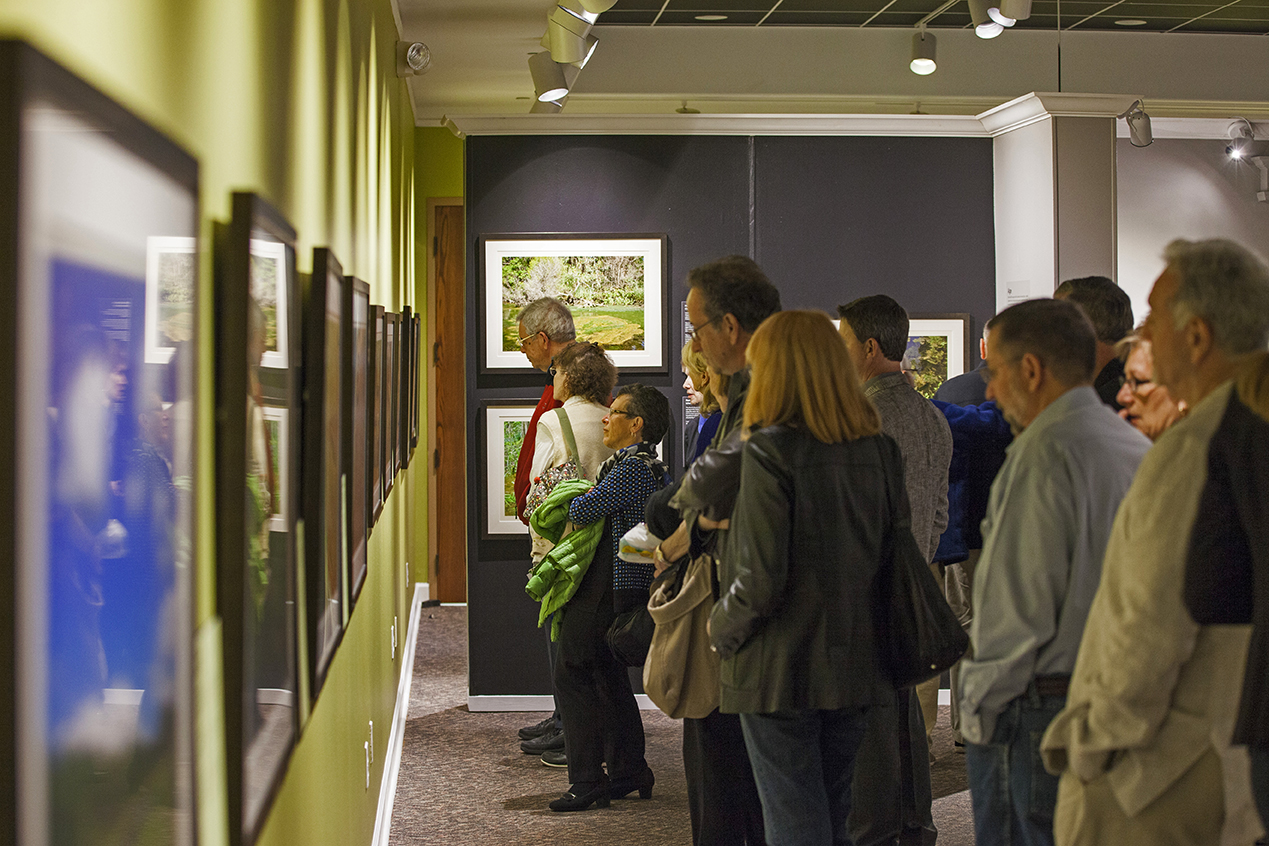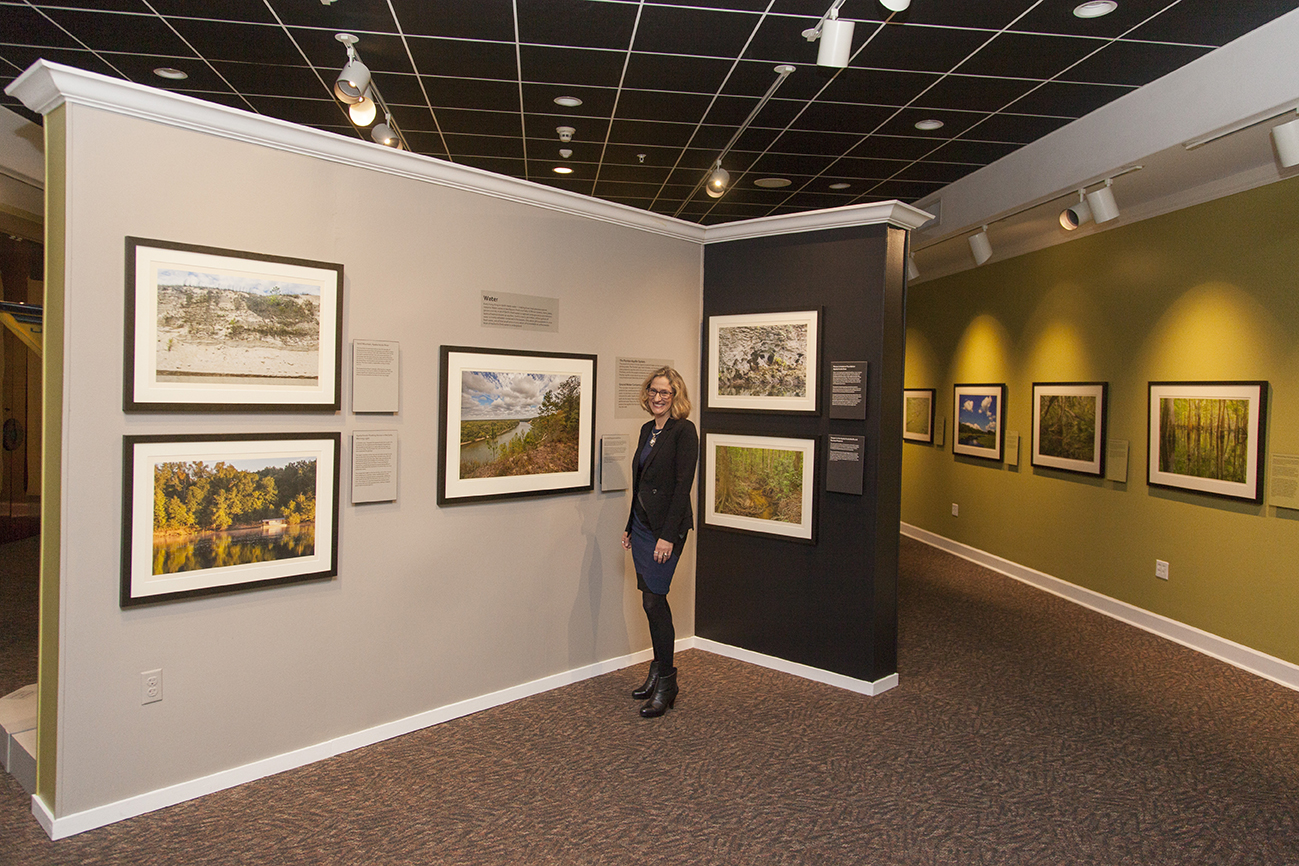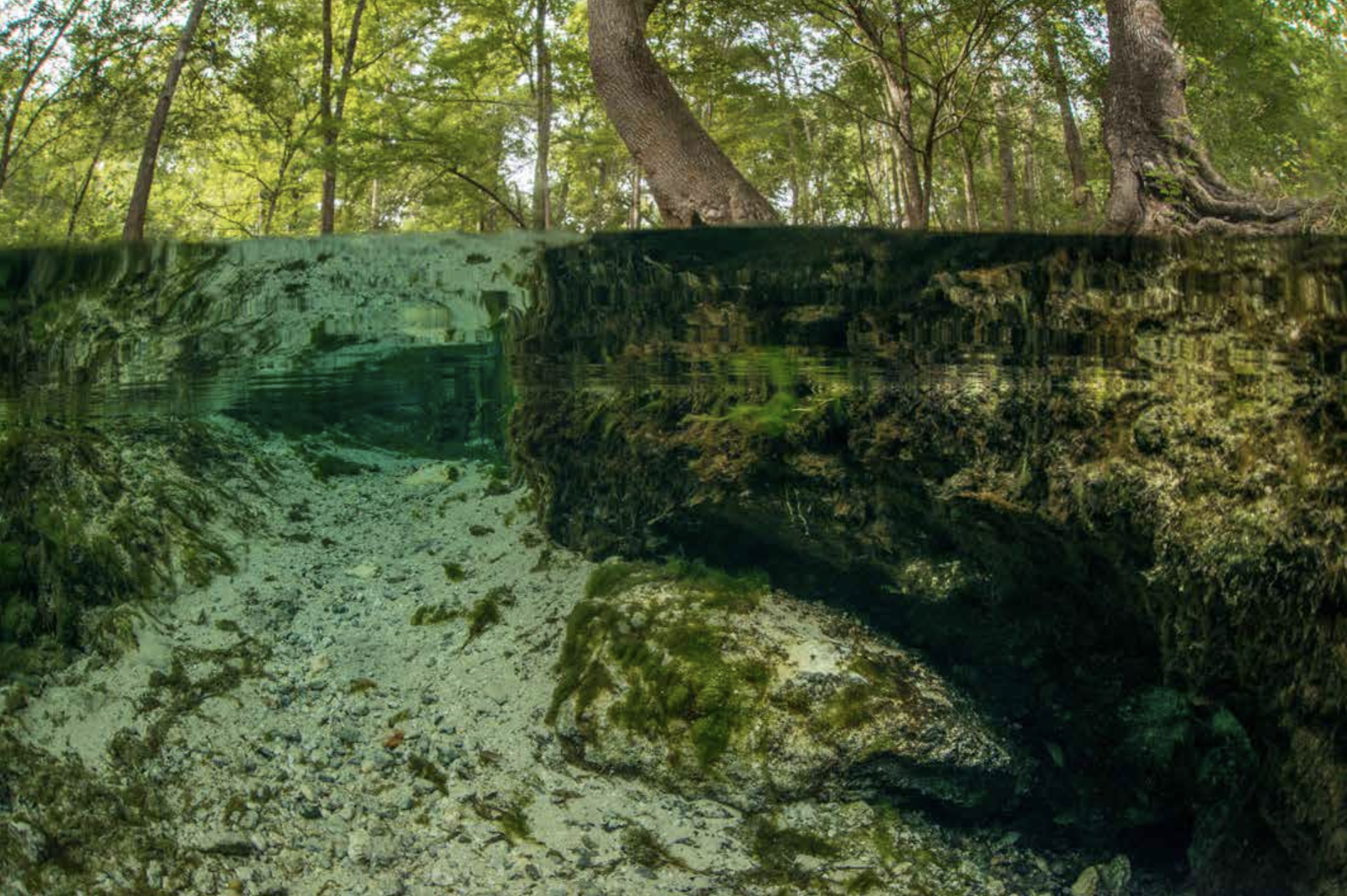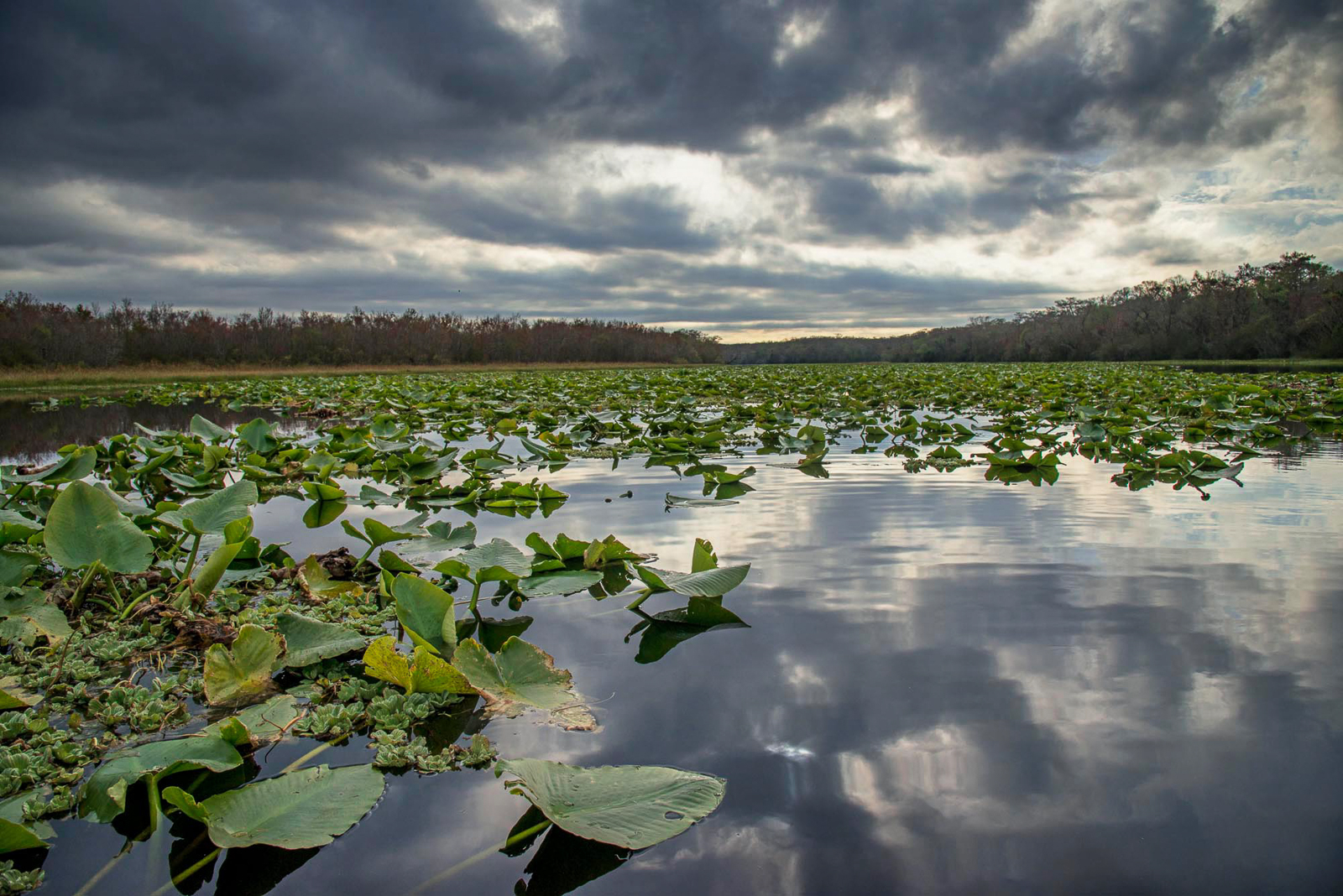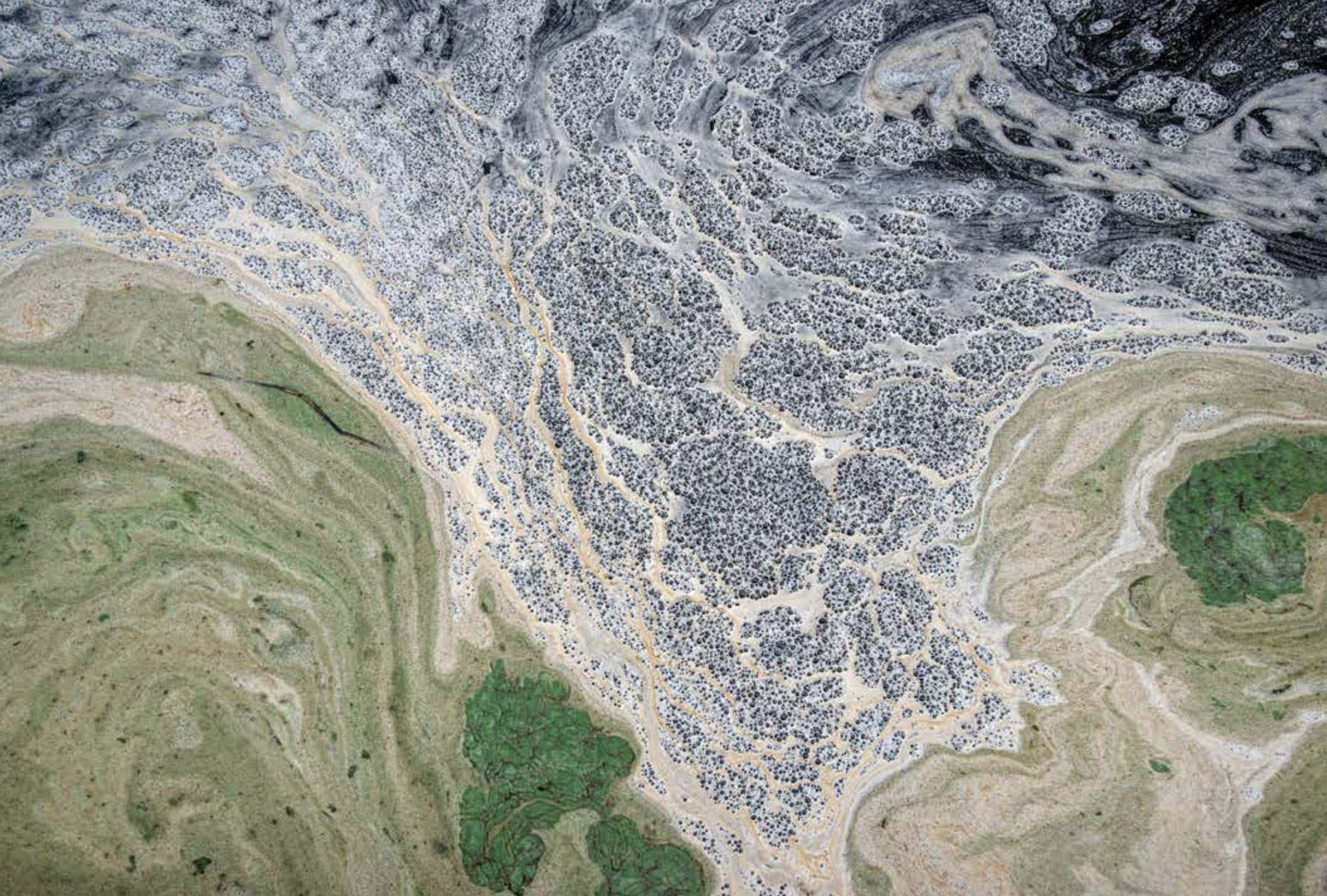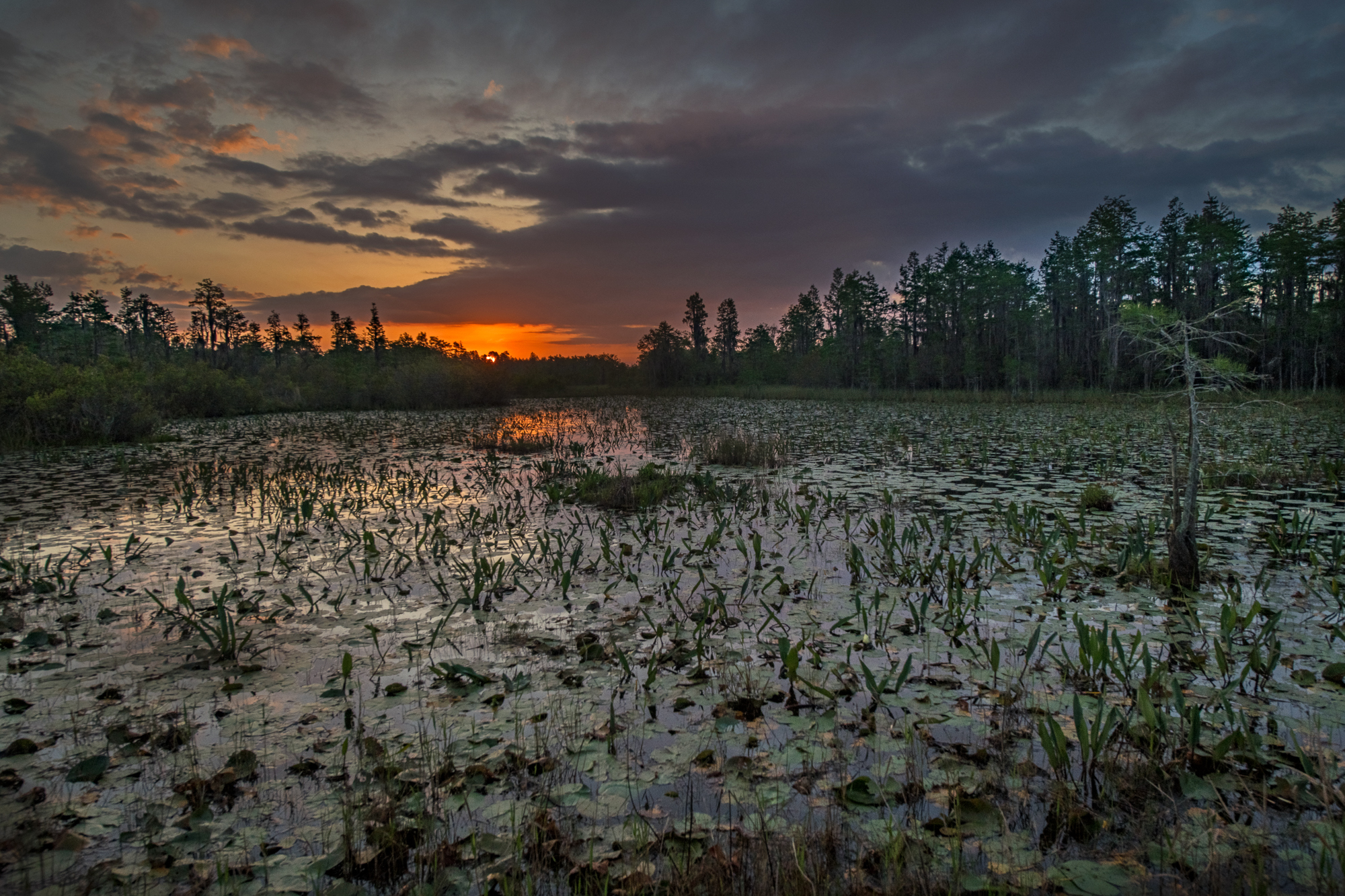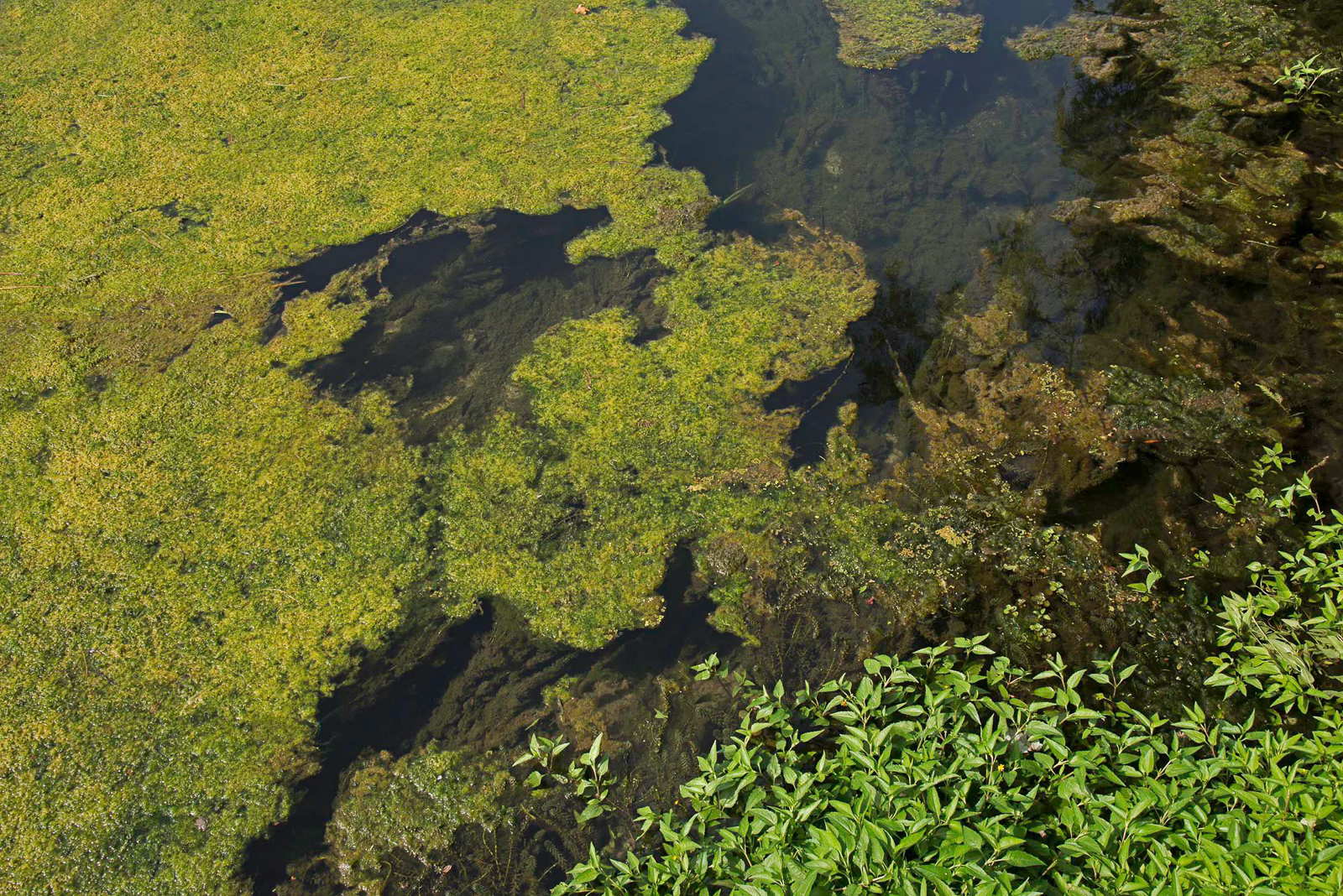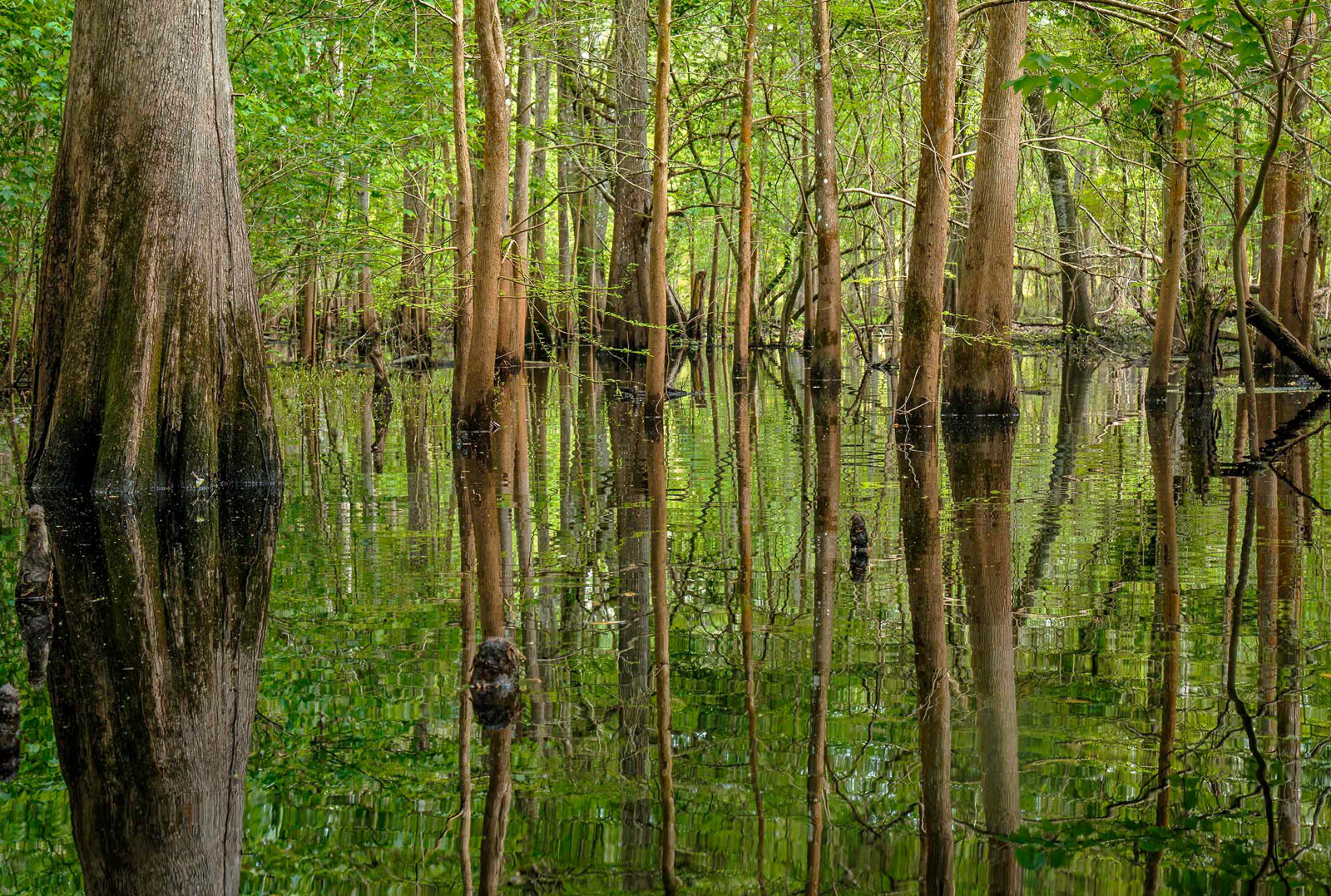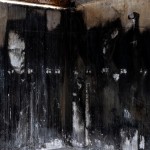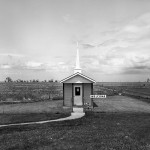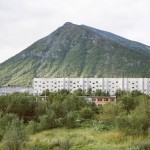Lynne Buchanan: Florida’s Changing Waters
Lynne Buchanan began diligently photographing her native Florida’s waterways with the hope to create a record of her personal relationship with those environments. With time, she began noticing the damage unchecked human activity was causing to those landscapes she explored. Agricultural and industrial pollution, urban sprawl, and population growth have destabilized the delicate balance of Florida’s marshland ecosystems. Buchanan’s new book, Florida’s Changing Waters, published by George F. Thompson Publishing, is an extensive catalog of the complex coastal and inland waterways and springs which are being altered in real time by human activity.
To the untrained eye, Buchanan’s photographs capture a recognizably Floridian landscape – puffy white clouds doting an impossibly sunny blue sky, crystal clear water snaking through the lush green marshland. But the longer I sit with her images, ranging in perspective from on land, to aerial, and underwater, the more I feel called to consider the history of the environment that Buchanan is immersed in. These waters provided sustenance to Native populations, and support vital biodiversity to this day. How have they changed? How will they change? Buchanan seeks to provide a visual answer to these questions, which can be applied not only to the Floridian landscape, but to waterways and ecosystems across the country, which are being altered every day as a result of human-caused climate change. Lynne’s book has been nominated for Aperture Foundation’s First PhotoBook Award as well as Best Book in Ecology/Environment with Foreword Indies, an important venue for independent publishers.
Growing up in Sarasota, Florida, Lynne Buchanan learned to love the water of the bays and rivers around her. She graduated from New College of Florida, and later earned an M.B.A. from New York University, an M.A. in creative writing from the University of South Florida, and an M.A. in Art History/Museum Studies from George Washington University. She honed her passion for art working in galleries in New York and Washington, DC.
After years in the corporate world and raising three children, Buchanan began pursuing her interest in photography more seriously, studying and taking workshops with world-class photographers around the country. Since undertaking her photographic career, she has studied with Sam Abell, Theresa Airey, Alain Briox, Clyde Butcher, Rikki Cooke, John Fielder, Jack Graham, Dewitt Jones, Arthur Morris, and Guy Tal. Inspired by her own feeling of spiritual connection to the natural world and fueled by indigenous worldviews and the writings of renowned 13th-century German mystic Hildegard von Bingen, Buchanan again took to the trails and waterways of her native Florida. Through her travels, she began to see up-close the ramifications of human excess and climate change and quickly shifted focus to document the imperiled natural areas that she loved.
Buchanan’s work, which has been exhibited widely in Florida, has appeared in solo and collective shows in Colorado, New Mexico, Boston, Providence, and Atlanta as well as Greece. She has continued to document both the natural beauty and the effects of climate change on aquatic ecosystems in her native state, but has also focused her lens on Iceland, Patagonia, the Falklands, Bangladesh, and elsewhere. An affiliate of the Waterkeeper Alliance since 2013, Buchanan has worked with Waterkeepers globally during these projects. This summer she studied water issues in lakes with a microbiologist and photographer in Poland. She currently lives in Asheville, North Carolina, where she often photographs the biodiversity of the Southern Appalachians.
“Water does not stop at borders and what happens to water upstream impacts people and ecosystems downstream . . . The preservation of water should not be a partisan issue. It is a basic human right that we all need to work together to preserve.”
––Lynne Buchanan
Florida’s Changing Waters
Florida’s waterways are treasures that are being irreparably damaged from the negative impacts of climate change, agricultural pollution, population and urban growth, and land development. The photographs in Changing Waters are a document of what is happening and a call to action to preserve these resources for the importance of both their natural beauty and essential role in our survival. This project also highlights the efforts of those who are involved in the protection of our waterways, and shares their successes and failures, as well as their perspectives on the use and conservation of water.
It’s no secret that Florida, especially South Florida and the Miami Beach area, is experiencing unprecedented development. Because Florida is known mostly for its beaches, the preservation of rivers, lakes and bays is frequently overlooked. The explosion of coastal development is on-going situation that threatens the health of coastal areas by removing or harming plants such as mangroves and decimating the habitat of sea creatures such as oysters that are critical to the preservation of shorelines and water quality. Human health, and the health of the entire ecosystem are at risk.
As the population increases estuaries and waterways are being damaged by the diversion of water from inland waterways to use in reservoirs and farms, and by the removal of water from aquifers. The encroachment on watersheds caused by population growth and expanding neighborhoods with more lawns, roadways, and wastewater drainage pipes also contributes to the deterioration of water quality. Additionally, sea level rise combined with increasingly severe storms threatens the quality of freshwater rivers and lakes as well as the integrity of the coastline, riparian landscapes, and native species.
In 2013 I drove alone cross-country in search of myself and for something to which I could dedicate my life. While I was traveling I met river keepers and indigenous people who were protecting the ever-dwindling waterways of the Southwest. When I returned home, I decided to focus on the waterways in my home state of Florida. Recently, I traveled across the country again meeting Waterkeepers and indigenous people and recognized the water issues we are facing as a society cross state lines and will benefit for a more unified approach in the search for solutions. With this project, I invite viewers to consider their personal relationships to water, and to consider how they might be better stewards of this fundamentally important––and finite–– resource.
Posts on Lenscratch may not be reproduced without the permission of the Lenscratch staff and the photographer.
Recommended
-
Review Santa Fe: Leslee Broersma: Tracing AcademiaFebruary 11th, 2026
-
Review Santa Fe: Ilana Grollman: Just Know That I Love YouFebruary 10th, 2026
-
Review Santa Fe: Julia Cluett: Dead ReckoningFebruary 8th, 2026
-
Review Santa Fe: Elizabeth Z. Pineda: Sin Nombre en Esta Tierra SagradaFebruary 6th, 2026

